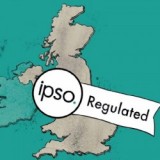 A weekly newspaper has been cleared of any wrongdoing by the press watchdog after publishing the name of a 13-year-old girl who was the alleged victim of a serious assault.
A weekly newspaper has been cleared of any wrongdoing by the press watchdog after publishing the name of a 13-year-old girl who was the alleged victim of a serious assault.
The Independent Press Standards Organisation has rejected a complaint made against the Evesham Journal by the girl’s father after finding it had taken quick and decisive action once it was made aware of the child’s age.
The girl’s name, along with the names of other alleged victims, was included in a story which reported an individual had been charged with several offences.
The Journal had initially published the alleged victims’ names after they were referenced in the court listing document, prompting the complaint from the child’s father.
But IPSO ruled the paper had acted immediately to remove the victims’ names from the online version of the story, once made aware of the complaint, and had subsequently ensured that a court reporter attended the subsequent hearings in person to ensure that they were aware of any orders made by the court in relation to the girl.
Complaining under Clause 2 (Privacy), Clause 4 (Intrusion into grief or shock), Clause 6 (Children), and Clause 9 (Reporting of Crime) of the Editors’ Code of Practice, the girl’s father said that his daughter was the victim a serious crime and should have been protected.
He said having her name published in the local press left her exposed to people discovering her identity and noted his daughter had been the victim of an assault, with the publication of her name causing further alarm and distress.
Denying any breach of Code, the Journal noted that there is no automatic right to anonymity for children in court cases and that anonymity is only granted once a court order has been issued.
At the time of the story’s publication, there was no such order in place and the Journal added it had been unaware the girl was under 18 at the time of publication.
The names of the victims had been removed from the story less than an hour-and-a-half after the man had contacted the Journal about the issue, further taking the decision to publish a redacted version of the story in print and ensuring a court reporter was present at further hearings related to the case.
IPSO was satisfied that the action of removing all names from the story demonstrated a particular regard being paid to the potentially vulnerable position of child victims of crime, given that the Journal had not known the ages of all of the victims and had therefore chosen to remove all names rather than risk continuing to publish the name of a child.
The decision appeared to have been made early in the working day, after discussions with the deputy editor – demonstrating to the Committee that the matter had been escalated and dealt with quickly.
In addition, the paper had ensured that the court reporter attended the subsequent hearings in person, to ensure that they were aware of any orders made by the court in relation to the girl’s age, and that the print version of the story did not include her name.
Taking all these factors into account, the Committee was satisfied that – once it became aware of the girl’s age – it had paid particular regard to her potentially vulnerable position.
The complaint was not upheld, and the full adjudication can be read here.





 Follow HTFP on Twitter
Follow HTFP on Twitter